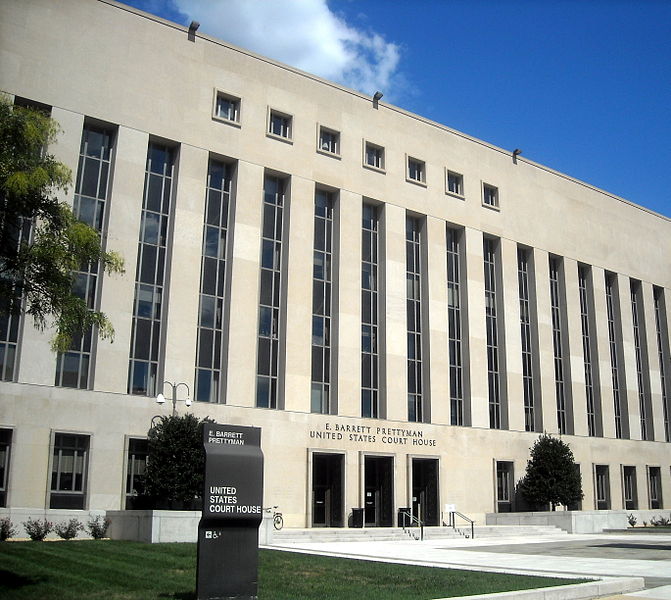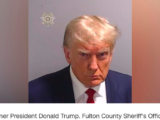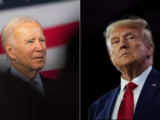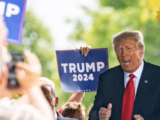By Glynn Wilson –
WASHINGTON, D.C. — A federal appeals court has rejected former President Donald Trump’s claim that he was immune to charges of engaging in a seditious conspiracy to subvert the results of the 2020 election, ruling that he must go to trial on a criminal indictment accusing him of seeking to overturn his loss to President Joe Biden by calling on supporters to march on the U.S. Capitol on the day the results were to be certified in what has accurately been portrayed as an insurrection.
The unanimous ruling by a three-judge panel of the U.S. Court of Appeals for the District of Columbia, according to breaking news from the New York Times, comes as a major legal defeat for Trump, although he has vowed to appeal to the Supreme Court.
The 57-page ruling “signaled an important moment in American jurisprudence,” according to the Times, answering a question that had never been addressed by an appeals court and develops language as I reported on Sunday: Can former presidents escape being held accountable by the criminal justice system for things they did while in office, as the Times put it, or as I wrote, “language … outlining why a former president does not have immunity from the laws of the land — that no one is above the law.”
The question is novel because no former president had ever been indicted in a criminal case like this, so there was never an opportunity for a defendant to make — and courts to consider — the sweeping claim of executive immunity Trump is trying to claim.
The panel is composed of two judges appointed by Democrats and one Republican appointee. Together in bipartisan fashion they decided that, despite the privileges of the office he once held, Trump was subject to federal criminal law like any other American citizen.
“For the purpose of this criminal case, former President Trump has become citizen Trump, with all of the defenses of any other criminal defendant,” the judges wrote. “But any executive immunity that may have protected him while he served as president no longer protects him against this prosecution.”
In the final, decisive paragraph, they wrote:
“We have balanced former President Trump’s asserted interests in executive immunity against the vital public interests that favor allowing this prosecution to proceed. We conclude that concerns of public policy, especially as illuminated by our history and the structure of our government compel the rejection of his claim of immunity in this case,” the judges ruled. “We also have considered his contention that he is entitled to categorical immunity from criminal liability for any assertedly ‘official’ action that he took as President — a contention that is unsupported by precedent, history or the text and structure of the Constitution. Finally, we are unpersuaded by his argument that this prosecution is barred by double jeopardy principles. Accordingly, the order of the district court is AFFIRMED. So ordered.”
Read the full 57-page ruling here for free.
A spokesman for Jack Smith, the special counsel who brought the case against Trump, declined to comment on the decision on deadline.
The panel’s ruling came nearly a month after it heard arguments on the immunity issue from Trump’s legal team and from prosecutors working for the special counsel, Jack Smith. While the decision was quick by the standards of a normal appeal, what happens next will be arguably more important in determining when or whether a trial on the election subversion charges will take place, according to the Times.
The three judges drew a line about Trump’s ability to use further appeals of the immunity issue to waste more time and delay the case from going to trial, which had obviously become a strategy Trump has pursued from the beginning.
If the question does reach the Supreme Court, the justices will first have to decide whether to accept the case, probably likely, or to reject it, and allow the appeals court’s ruling against Trump to stand. If they decline to hear the case, it will be sent back to the trial judge, Tanya S. Chutkan, who scrapped her initial March 4 date for the trial last week, but has otherwise shown every sign of wanting to move the charges toward trial as quickly as possible.
If, however, the Supreme Court does accept the case, the crucial question will become how quickly the justices act in asking for briefs and in scheduling arguments. Should they move rapidly to hear the case and issue a decision, there remains the chance that a trial on the election charges will occur before the general election in November.
But if the justices take their time, it is possible a trial could be put off until after the election. And were that to happen and Trump were to win, he would be in a position to ask his Justice Department to dismiss the case or even seek to pardon himself.
The indictment itself portrayed an attack on American democracy. Smith framed his case against Trump as one that cuts to a key function of democracy: the peaceful transfer of power. By underscoring this theme, Smith cast his effort as an effort not just to hold Trump accountable but also to defend the very core of democracy.
Trump was placed at the center of the conspiracy charges. Smith put Trump at the heart of three conspiracies that culminated on Jan. 6, 2021, in an attempt to obstruct Congress’s role in ratifying the Electoral College outcome. The special counsel argued that Trump knew that his claims about a stolen election were false, a point that, if proved, could be important to convincing a jury to convict him.
Trump didn’t do it alone. The indictment lists six co-conspirators without naming or indicting them. Based on the descriptions provided, they match the profiles of Trump lawyers and advisers who were willing to argue increasingly outlandish conspiracy and legal theories to keep him in power. It’s unclear whether these co-conspirators will be indicted.
Trump’s political appeal remains strong. Trump may be on trial in 2024 in three or four separate criminal cases, but so far the indictments appear not to have affected his standing with Republican voters. By a large margin, he remains his party’s front-runner in the presidential primaries. Many of those voters, however, including Republican Trump supporters, have said if he is convicted of a felony, they may not support him in the presidential election of 2024 to take place in November.
Add One
Not sure why former Alabama Senator Doug Jones is still using Twitter(X), since most Democrats no longer use it due to the shenanigans of Elon Musk, but all politicians and most news organizations are still posting their comments and quotes there.
In any event, he said on there today that “the appeal to the Supreme Court which is sure to come is discretionary with the court. They should flatly deny it with Justice Thomas recusing.”
There will be an awful lot posted today about the Court of Appeals holding that a President, in this case Donald J. Trump, is not absolutely immune from prosecution. No need to add much here but to say that the appeal to the Supreme Court which is sure to come is discretionary…
— Doug Jones (@DougJones) February 6, 2024
___
If you support truth in reporting with no paywall, and fearless writing with no popup ads or sponsored content, consider making a contribution today with GoFundMe or Patreon or PayPal. We just tell it like it is, no sensational clickbait or pretentious BS.














